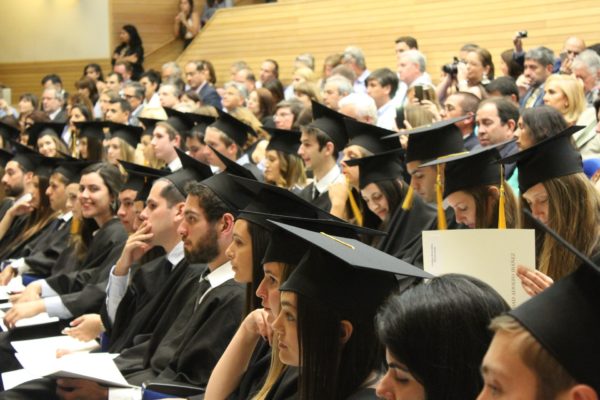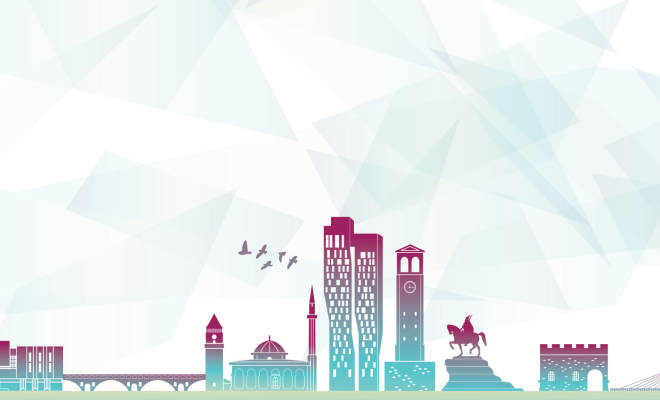Launch of a new action group on Artificial Intelligence for sustainable development

Despite significant efforts, the targets of the Sustainable Development Goals (SDGs) are not on track. The Higher Education Sustainability Initiative (HESI) Global Forum 2024 emphasized the need for collective action to close this gap. Shen Xiaomeng, Vice Rector in Europe and Director of the United Nations University’s Institute for Environment and Human Security, highlighted the potential of Artificial Intelligenge (AI) to improve this situation and advocated for a balanced approach to its opportunities and limitations.
Bosen Lily Liu, Head of Partnership and UN Liaison Unit at UNESCO IESALC, noted that there is a clear gap in technological readiness between high-income countries and other income disparities. Although the last few years have been crucial in initiating discussions on AI, there is a need to enhance debates on AI regulations that address the specific challenges the world is facing through responsible, reliable, applicable, accessible, and sustainable AI integration in the future of higher education.
In rethinking higher education for a sustainable future, Hilary Beckles, Vice Chancellor of the University of the West Indies, supported the development of SDGs area of lifeline for universities and encouraged activism among educational institutions. The University of the West Indies has created an International School of Development Justice, whose sole purpose is to build capacity on sustainability and the SDGs, and to encourage universities to create valuable partnerships.
Jean-Christophe Carteron, Senior Advisor, HESI, introduced the new action group dedicated to the future of education and AI, strengthening global networks and addressing the disparity in technological readiness between high-income countries and others.
As Paulo Speroni (Manager of Strategy, Governance & Innovation, Principles for Responsible Management Education, Student Action Group) well noted, “education has transcended the traditional boundaries of the classroom” and there is an urgent need to engage with young people and support them to implement sustainable change.
Duncan Ross, Chief Data Officer, Times Higher Education) stressed the importance of rankings and assessments, and how partnerships can contribute to better practices. On AI, Jonghwi Park (The Futures of Higher Education and Artificial Intelligence, UNU) presents the benefits of an evidence-based implementation of digital technologies and welcomes the newly launched HESI Action Group on AI for Sustainable Development.
Education for Green Jobs and SDG Publishers Compact are two of the HESI action groups, presented by Debra Rowe, President, U.S. Partnership for Education for Sustainable Development, who described the importance of innovative initiatives that put young people at the center. Aurelien Decamps, Co-founder, Sulitest, highlighted the role of multi-stakeholder collaboration in mainstreaming sustainability literacy.
International initiatives and partnerships
Quinn Runkle, Director, of Education, SOS-UK, presented three international initiatives endorsed by HESI: the SDG Accord, International Green Gown Awards, Race to Zero for Universities and Colleges. All of them aim at action, advocacy and networking among inspiring youth and students to promote sustainable development.
The Sustainability Evaluation Tool for Higher Education Institutions (SET4HEI) has just been launched and Victoria Galán-Muros, Chief of Research and Analysis, UNESCO International Institute for Higher Education in Latin America and the Caribbean (IESALC) explained its relevance in assisting educational leaders and complementing already existing open online tools to address current educational challenges.
Finally, Jayashri Wyatt, Chief of Education Outreach Section at UN Department of Global Communications, recognized the toles of United Nations Academic Impact SDG Hubs and innovative partnerships in driving progress towards the SDGs and stressed the power of young people to drive this progress.
The future of higher education and sustainable development
Panel discussions moderated by Bosen Lily Liu explored integrating education, innovation, and sustainable development. Lydia Logan (Vice President, Global Education and Workforce Development, Corporate Social Responsibility at IBM, shared IBM’s holistic skills-first approach for the future of talent and its offering of innovative technologies for students to explore their career in technology, with a special focus on young girls and women.
From a civil society perspective, Zamzam Ibrahim, Director of SOS-International, referred to sustainability as a right and invited organizations to collaborate, as well as co-create research and development to benefit communities and move towards a just transition. In addition, Miki Sugimura, UNESCO Chair on Education for Human Dignity, Peace and Sustainability at Sophia University and Vice Chair of ProSPER.Net, highlighted a networking platform called SDG Hub, where Japanese universities can share their concerns, challenges, and opportunities related to sustainability.
On achieving the 2030 Agenda, Professor Mohammed Alshehri, Vice Rector for Graduate Studies and Scientific Research at Majmaah University, shared his university’s efforts to integrate AI into sustainability studies for data analysis and research and to generate innovative solutions.
Jennifer Milam, Pro Vice-Chancellor of Academic Excellence, University of Newcastle, added the importance of an equity approach when developing sustainable partnerships, and integrating technology while maintaining a global perspective when facing local and regional challenges. In the area of research training, Gbemi Disu, Vice President at Northeastern University, introduced the role of impact engines to create measurables in society and ensure sustainable outcomes as, for instance, the “community to community engine” to connect students to green jobs through appropriate technology and benefit a diverse youth.
Bringing the work of universities in the discussion, Kevin Hall, President of the University of Victoria, talked about the connections between the different stakeholders and using the campus as “a living lab.” He explained the presence of natural intelligence in the regeneration of the natural landscape of the campus and how indigenous knowledge plays an essential role in its integration. Finally, Arturo Condo, President of EARTH University, emphasized the need to place the SDGs at the center of institutional priorities and to design specific collaborative programs to advance in the global goals.
This inspiring session has provided a platform for diverse stakeholders to share their invaluable insights on the future of education and higher education and the pivotal role of digital technologies. It has become evident that while significant progress has been made, much remains to be done. We must ensure that the lessons learned during this forum are not overlooked. It is crucial that we actively commit to using the insights and networks fostered during these sessions to drive accelerated implementation of the Sustainable Development Goals (SDGs) and promote sustainable higher education globally.
About HESI
The Higher Education Sustainability Initiative (HESI) is a partnership between several United Nations entities and the higher education community, aiming to mobilize higher education for sustainable development.
For more information on the HESI Global Forum 2024, please visit: https://sdgs.un.org/HESI/2024GlobalForum
Streaming: https://sdgs.un.org/HESI/2024GlobalForum
RELATED ITEMS








